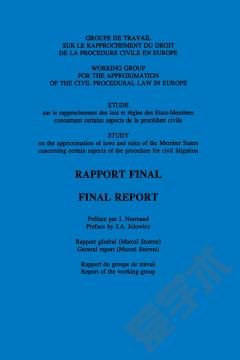Judicial Protection in the European Union
Appearing at a time when the ancient problem of the individual versus the state once again occupies the minds of thinking Europeans, this important new book thoroughly evaluates the judicial system of the European Union, fully describing the nature of the judicial protection available to individuals, undertakings, and member States.With attention to the rapid and continuing development of the Community legal order, Schermers and Waelbroeck provide a much-needed perspective on the reasoning of the European Court of Justice in significant decisions, especially recent cases, and shed revealing light on how the rule of law may develop in future.An introductory chapter offers a masterful description of how Treaty provisions, Community acts, international law, and national legal orders interact in the procedures and decisions of the Court of Justice. Further chapters provide analysis and insight into such matters as the following:? the crucial role of national courts as guarantors of the rights of individuals in Community law;? the validity of acts taken by Community institutions and member States, and protection against them;? the delivery of non-judicial opinion and other tasks of the Court of Justice;? the composition, function, and rules of procedure of the Court; and? the organisation of the Court of First Instance and the appeal procedure against its decisions.Judicial Protection in the European Union is organised to facilitate its prodigious reference value. All important cases are examined, and abundant footnotes clearly indicate relevant precedents in each case. This is a fundamental source for students of European law, as well as a basic reference for practitioners and a valuable analysis of the strengths and weaknesses of the European system of judicial protection.
{{comment.content}}








 京公网安备 11010802027623号
京公网安备 11010802027623号